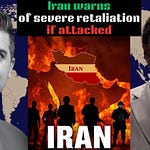Nima Rostami Alkhorshid:
What is your assessment of the recent U.S. attack on Iran and its strategic implications?
How do you evaluate the role of international institutions like the IAEA in addressing such conflicts?
Do you believe the West’s approach toward Iran undermines international law?
How significant is the growing alignment between Iran, Russia, and China in response to Western pressure?
What are the broader consequences of irrational decision-making in global politics?
Col. Jacques Baud:
The U.S. attack on Iran appears to be more symbolic than effective, lacking clear strategic objectives and likely driven by political pressures rather than military necessity.
International institutions like the IAEA are being misused or sidelined, weakening their credibility and undermining the global nuclear monitoring system.
Yes, the West’s selective enforcement of international law, especially regarding nuclear rights, reveals a systemic bias that erodes trust in the global order.
The alignment between Iran, Russia, and China reflects a shared opposition to Western hegemony and could reshape geopolitical dynamics in the long term.
Irrational decision-making, often based on ideology or misinformation, destabilizes governance, fuels conflict, and weakens accountability in international relations.












Share this post